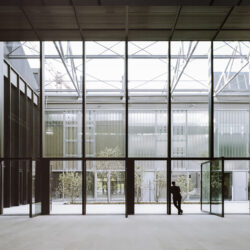As we navigate the post-peak era of COVID-19, the landscape of our work environment has undergone a profound transformation. While the path towards resuming normalcy is gradually unfolding, it’s evident that the way we work has been permanently altered.

Remote Work Was Already on an Upswing
Even before the pandemic, remote work was gaining traction as an attractive option for many employees. The allure of eliminating commutes and enjoying the flexibility to integrate personal activities into the workday appealed to both workers and employers. Studies showcasing increased productivity and heightened job satisfaction further fueled the popularity of remote work arrangements. Younger generations, particularly Millennials and Gen Z, embraced the gig economy, contributing significantly to the rise of remote work.
The Pandemic Accelerated the WFH Movement
The COVID-19 pandemic served as a catalyst, accelerating the widespread adoption of remote work. While not all professions could seamlessly transition to remote setups, office workers found themselves adjusting to remote work environments with surprising ease. Reports from McKinsey indicated that a substantial portion of the workforce could effectively work remotely for a significant portion of the week. This newfound flexibility prompted some individuals to reassess their living situations, leading to relocations to suburban areas with lower living costs and larger homes conducive to setting up dedicated home offices.

Now it’s Here to Stay
Remote work is no longer a temporary solution but a permanent fixture in the work landscape. Surveys indicate that a majority of employees wish to continue remote work arrangements, at least part-time, post-pandemic. Tech giants like Facebook, Google, and Twitter have announced indefinite remote work policies, reflecting a broader shift towards remote-friendly cultures. Employers are increasingly investing in resources to support remote work, including hiring executives specializing in remote work strategies and providing stipends for home office setups.
Best of Both Worlds
The future of work lies in embracing a hybrid model that combines remote work with in-office collaboration. This hybrid approach offers the benefits of flexibility and cost savings for both employers and employees. It allows employees to enjoy the perks of remote work while maintaining access to in-person collaboration, superior technology, and a conducive work environment. Studies have shown that hybrid work models can enhance overall job satisfaction and mitigate burnout, making them a preferred choice for many organizations.
In conclusion, the pandemic has reshaped our perception of the workplace, ushering in a new era of remote work. As we adapt to this evolving landscape, companies must embrace a flexible mindset that accommodates the changing needs and preferences of their workforce. The future of work is defined by agility, adaptability, and a commitment to creating inclusive and supportive work environments, whether at home or in the office.






















